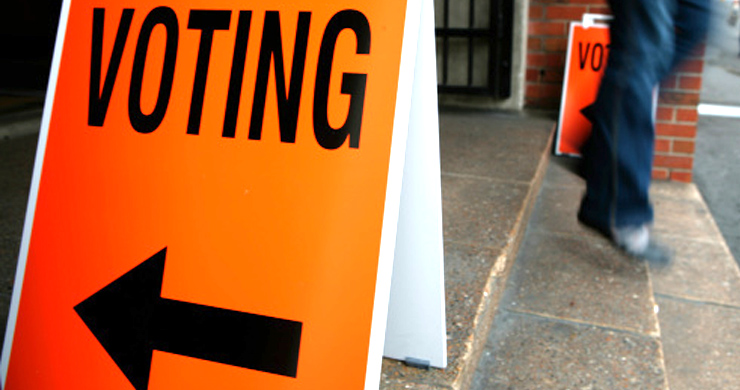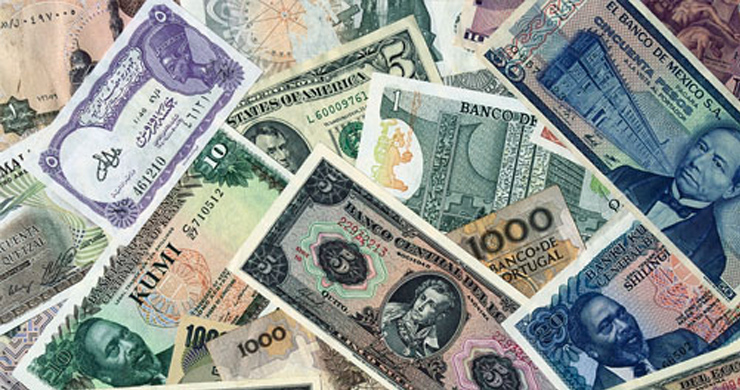How Does the EU Work?
The EU Referendum
The referendum or even THE idea that the UK will leave the EU is sometimes called Brexit; this is an amalgamation of two words Britain and Exit. This is similar to the term Grexit which was used when Greece was in danger of leaving in 2015. Some people have introduced the term ‘Bremain’ which is an amalgamation of Britain and Remain.
The Brexit referendum was a manifesto pledge by the Conservative Party in the 2015 General Election. The Conservative Party pledged to hold a referendum after changing some of the rules affecting The UK’s membership of the EU. The Prime Minister agreed a package of changes with other member states' leaders in Brussels in February.
The agreement, which will take effect immediately if the UK votes to remain in the EU, includes changes to:
- Sovereignty – The original EU Treaty included that all members committed to "ever closer union" with other EU member states. The UK will be exempt from this and this will be incorporated in an EU treaty change.
- Eurozone - Britain can keep the pound while being in Europe without fear of discrimination. Any British money spent on bailing out Eurozone nations will be reimbursed.
- Protection for the City of London - Britain's large financial services industry will be protected from Eurozone regulations.
- Competitiveness - All EU institutions and member states need to improve how effectively the single market works and this includes cutting ‘red tape’.
- 'Red card' for national parliaments - If 55% of national EU parliaments object to a piece of EU legislation it will be rethought.
- Some limits on free movement - Denying automatic free movement rights to nationals of a country outside the EU who marry an EU citizen and new powers to exclude people believed to be a security risk - even if they have no previous convictions.
- Migrant welfare payments - The UK can decide to limit in-work benefits for EU migrants during their first four years in the UK. This so-called "emergency brake" can be applied in the event of "exceptional" levels of migration.
- Child benefit - Child benefit payments to migrant workers for children living overseas to be recalculated to reflect the cost of living in their home countries.
A fun guide to the EU for Americans
Would leaving the EU mean we wouldn't have to abide by the European Court of Human Rights?
Many people are worried that if the UK left the EU that many of the rights that we as citizens of the UK enjoy would be lost. This is because we have signed up to a piece of European legislation (law) called the Human Rights Act. This is enforced by the European Court of Human Rights or ECHR.
Many others however who are campaigning for the UK to leave the EU do not like the fact that the UK is under the outside jurisdiction of a court that is not responsible to any UK Parliament or Assembly.
The ECHR is not a European Union institution. It was set up by the Council of Europe, which has 47 members including Russia and Ukraine. So quitting the EU would not exempt the UK from its decisions.
The current UK government is however committed to repealing the Human Rights Act which requires UK courts to treat the ECHR as setting legal precedents for the UK, in favour of a British Bill of Rights. As part of that, David Cameron is expected to announce measures that will boost the powers of courts in England and Wales to over-rule judgements handed down by the ECHR.
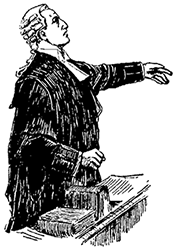
Image: Advokat, Engelsk advokatdräkt, Nordisk familjebok - Tene~commonswiki © Wikimedia Commons under Public Domain
Parts of the EU
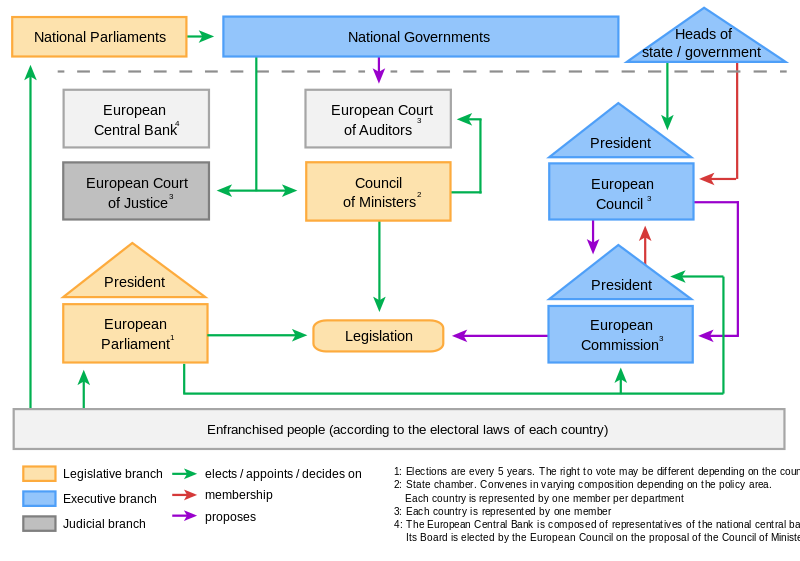
Image: Political System of the European Union - 111Alleskönner © Wikimedia Commons under Creative Commons Attribution-Share Alike 3.0 Germany
The European Parliament
People in the EU can vote for representatives their own National Parliaments/Assemblies and also for representatives in the European Parliament. There are currently 751 seats within the European Parliament which is elected every five years.
People across Europe vote directly for their own MEP’s (MEP + Member of the European Parliament). The European Parliament has very limited powers; it approves the budget but does not set it. Apart from this it only makes recommendations which are not binding so has very little actual power though its recommendations do carry a lot of influence and would not normally be ignored. It can also request legislation (laws) to be started by the European Commission which is the only part of the EU that can do this.
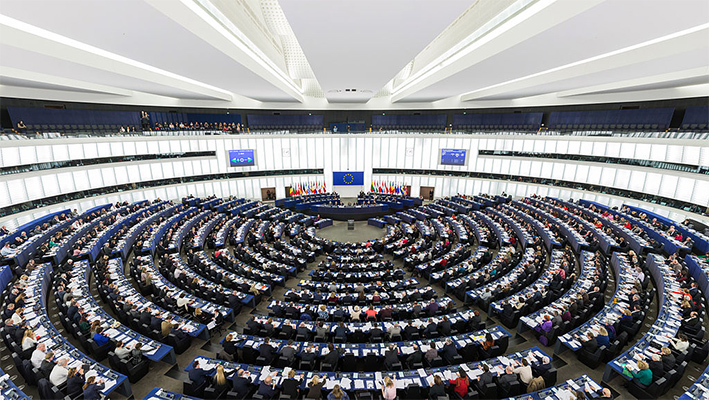
Image: European Parliament Strasbourg Hemicycle - Diliff © Wikimedia Commons under Creative Commons Attribution-Share Alike 3.0 Unported
The Council of Europe is made up of the Heads of States of each member country; in the case of the United Kingdom that would be the Prime Minister. The Council of Europe has no formal powers but it would not normally be ignored because of the fact that it is made up of the 28 Prime Ministers and Presidents. It can also request legislation from the European Commission just like the European Parliament as well as the fact that it is the same Heads of State that also appoint members to the European Commission which is the most powerful part of the EU.
The European Commission is made up of 28 members (one from each member country) appointed by the National Government of each country. So in the UK our commissioner is appointed by the Government in Westminster; which is the Cabinet made up of the Prime Minister and the Ministers. The Commission is responsible for the day to day running of the EU just like the Cabinet Governments of Wales and the UK; nearly all formal powers and the power to start legislation are reserved for the commission.
Most of the power therefore in the EU comes directly from the Heads of State of the member states; either directly or by the European Commissioner that they appoint to the Commission. As the majority of MEP’s also represent political parties led by the Heads of State what they say goes! As long as they can agree.
However all of these different parts of the EU government (along with several other smaller ones that we have not mentioned) creates a large and expensive bureaucracy and lot of rules either as legislation or directives that many people describe as ‘red tape’ and this will be a major part of the final linked article on what is good and what is bad about the EU for Wales.
Pupil Activity
Use a mind map type of diagram to show who has the most power in the EU.
Another issue you may find of interest, Investigating The Welsh Government Elections 2016.
